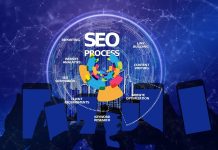In today’s digital age, establishing a strong online presence is crucial for businesses of all sizes. Search Engine Optimization (SEO) plays a pivotal role in ensuring your website is not only visible but also easily discoverable by potential customers. But what exactly is SEO, and why is it so beneficial?
What is SEO?
SEO, or Search Engine Optimization, refers to the practice of optimizing your website to enhance its visibility and ranking in search engine results pages (SERPs). By implementing various techniques and strategies, SEO experts like Grapefruit SEO agency and safari digital NZ aim to increase organic (non-paid) traffic to your site from search engines like Google, Bing, and Yahoo.
The Benefits of SEO
SEO has many benefits that can significantly impact the success of your online presence and business growth:
Helps More People Find Your Website
One of the primary advantages of SEO is its ability to attract more visitors to your website. By optimizing your site with relevant keywords, quality content, and user-friendly navigation, SEO helps ensure that your website appears prominently in search results. This increased visibility translates into more clicks and traffic, ultimately expanding your audience reach.
Cost-Effective Way to Grow Your Business
Compared to traditional marketing methods like print advertising or direct mail, SEO is highly cost-effective. While it requires an initial investment in time and resources to implement effective strategies, the long-term benefits outweigh the costs. Once your website begins ranking well in search engines, you can enjoy consistent organic traffic without continually paying for ad placements.
Gets You Ahead of the Competition
In today’s competitive digital landscape, standing out from the crowd is crucial. Effective SEO strategies can help your business outrank competitors in search engine results. By focusing on relevant keywords, creating valuable content, and optimizing your site’s performance, you can establish your brand as a leader in your industry.
Builds Trust
Search engine users tend to trust websites that appear higher in search results. By ranking well through SEO, you not only increase visibility but also build credibility and trust with potential customers. A well-optimized website with relevant content and a user-friendly experience signals to visitors that your business is reputable and authoritative in its field.
Helps You Rank Better in Local Searches
For businesses targeting local customers, local SEO is invaluable. Optimizing your website for local search queries, such as “near me” searches, ensures that your business appears in relevant local listings and can significantly improve local SEO rankings. This is particularly beneficial for brick-and-mortar stores and service-based businesses looking to attract customers within their geographic area.
Improves Website Usability
SEO isn’t just about search engines; it’s also about improving the overall user experience on your website. By optimizing page speed, mobile responsiveness, and navigation, SEO enhances usability and ensures that visitors can easily find the information they need. A well-structured and user-friendly website not only keeps visitors engaged but also encourages them to explore further and potentially convert into customers.
Enhanced Brand Visibility and Awareness
SEO plays a pivotal role in enhancing brand visibility and awareness. When your website consistently appears in top search engine results for relevant keywords, it not only attracts more clicks but also exposes your brand to a broader audience. Increased visibility not only drives more traffic but also reinforces brand recognition and recall among potential customers.
Long-Term Sustainability and ROI
Unlike paid advertising, where visibility ends when you stop investing, SEO provides sustainable long-term benefits. Once your website achieves a solid ranking through effective SEO practices, it continues to attract organic traffic without ongoing investment in paid ads. This aspect of SEO makes it a valuable asset for businesses looking to achieve a high return on investment (ROI) over time.
Targeted Traffic and Qualified Leads
SEO enables businesses to attract highly targeted traffic that is actively searching for products or services similar to what they offer. By optimizing for specific keywords related to your niche, SEO helps connect you with potential customers who are more likely to convert. This targeted approach not only increases the quality of traffic but also improves the likelihood of generating qualified leads and sales.
Insights into Customer Behavior and Preferences
Effective SEO involves analyzing and understanding customer behavior through tools like Google Analytics. By examining metrics such as search queries, bounce rates, and time spent on site, businesses can gain valuable insights into customer preferences, interests, and pain points. This data-driven approach allows for continuous optimization of content and user experience, further enhancing SEO effectiveness and customer engagement.
Integration with Content Marketing and Social Media
SEO and content marketing go hand in hand. Quality content that is optimized for relevant keywords not only improves search engine rankings but also engages and informs your audience. By creating valuable and shareable content, businesses can leverage social media platforms to amplify their SEO efforts. Social signals such as likes, shares, and comments also contribute to SEO rankings, making a cohesive digital marketing strategy crucial for maximizing online visibility and engagement.
Adaptability to Changing Algorithms and Trends
Search engine algorithms are constantly evolving to deliver more relevant and useful search results to users. Effective SEO strategies involve staying updated with these algorithm changes and adapting your approach accordingly. By focusing on white-hat SEO techniques and providing valuable content, businesses can maintain and improve their rankings despite algorithm updates, ensuring long-term success and sustainability.
Conclusion
In conclusion, SEO has many benefits that can propel your business forward in today’s competitive online marketplace. From increasing visibility and attracting more visitors to building trust and improving user experience, mastering SEO is important for sustainable growth. Whether you’re looking to improve local SEO rankings or enhance your overall online presence, investing in SEO strategies can yield significant long-term results. By understanding and implementing effective SEO practices, you can ensure that your website not only ranks well in search engines but also achieves your business objectives effectively.
SEO has many benefits. Mastering SEO is important to improve local SEO rankings and overall online visibility. By implementing effective strategies, businesses can enhance their online presence and attract more customers organically.
FAQs
1. Why is SEO important for my business?
SEO is crucial because it helps potential customers find your website when they search for products or services related to your business. By appearing higher in search results, you can increase your website traffic, attract more leads, and ultimately grow your business.
2. Is SEO better than paid advertising?
SEO and paid advertising (PPC) serve different purposes and can complement each other in a marketing strategy. SEO provides long-term, sustainable results and can be cost-effective over time, whereas paid advertising offers immediate visibility but requires ongoing investment..
3. How long does it take to see results from SEO?
The timeline for seeing SEO results can vary depending on various factors such as the competitiveness of your industry, the quality of your SEO efforts, and the current state of your website. Generally, it can take anywhere from a few weeks to several months to see significant improvements in rankings and traffic.
4. What are the different types of SEO?
SEO can be broadly categorized into three types:
- On-Page SEO: Optimizing individual pages of your website with relevant content, keywords, meta tags, and internal links.
- Off-Page SEO: Building backlinks from other reputable websites, social media promotion, and other external factors that influence your site’s authority.
- Technical SEO: Improving website structure, speed, mobile-friendliness, and other technical aspects that affect search engine crawling and indexing.
5. How can I improve my local SEO rankings?
Improving local SEO involves optimizing your website and online presence to attract more business from relevant local searches. Key strategies include:
- Creating and optimizing Google My Business profile
- Getting reviews from customers
- Using local keywords in your content
- Ensuring NAP (Name, Address, Phone number) consistency across all online platforms
6. How do search engines determine rankings?
Search engines use complex algorithms to analyze hundreds of factors when determining the ranking of web pages in search results. These factors include relevance of content, quality of backlinks, website usability, mobile-friendliness, and user experience metrics.









